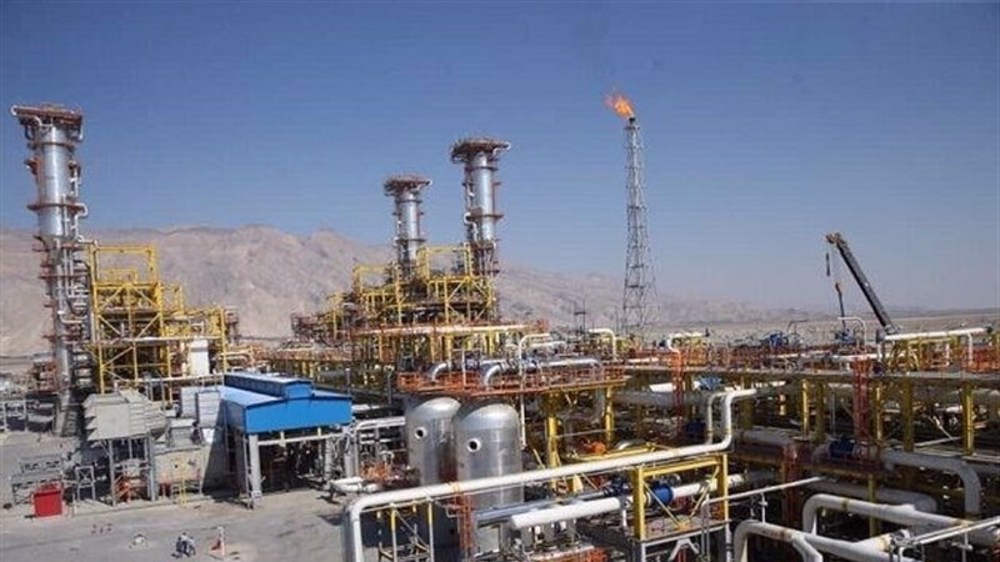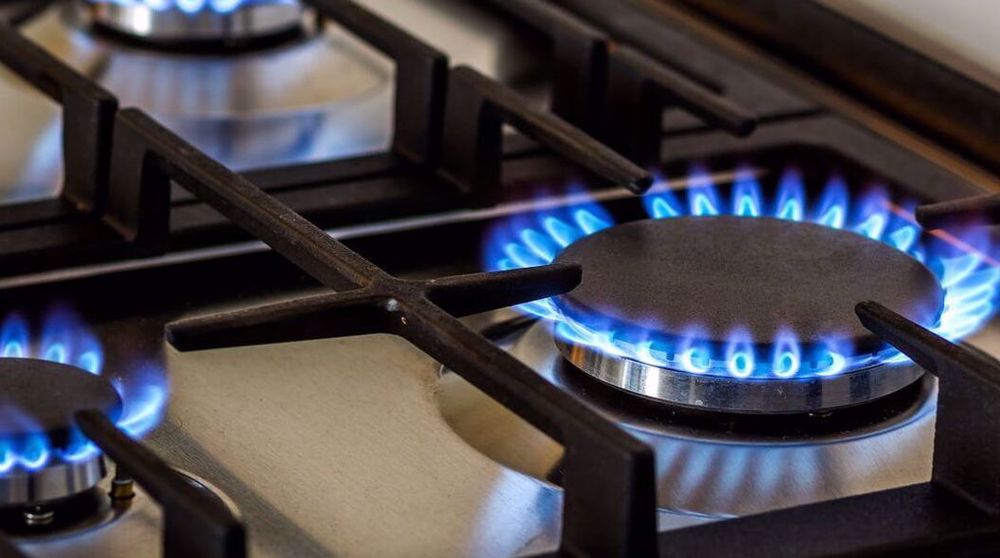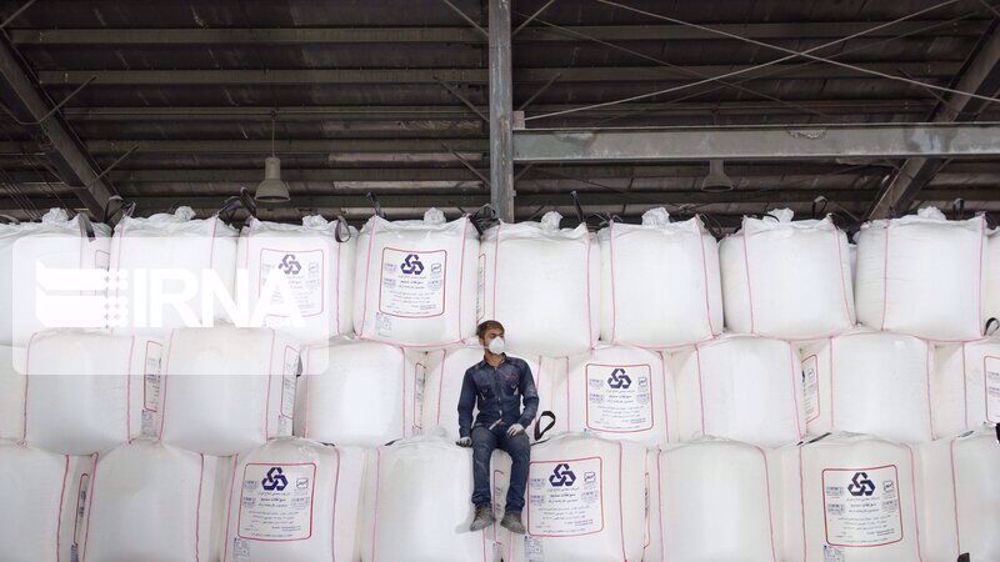Iran gives order for 500,000 bpd rise in oil production
Managing director of the National Iranian Oil Company says the Oil Ministry has been ordered to raise the country’s daily oil production by 500,000 barrels following announcement of the removal of international sanctions against Iran.
Speaking to reporters after a meeting with Iran's First Vice President Es’haq Jahangiri on Monday, Roknoddin Javadi said, “Following the removal of sanctions, Iran is ready to increase its crude output by 500,000 barrels per day (bpd), and the order to do this was notified [to Iran's Oil Ministry] today.”
The development came two days after Iran’s Foreign Minister Mohammad Javad Zarif and European Union’s foreign policy chief, Federica Mogherini, announced during a joint press conference in Vienna on Saturday the beginning of the implementation of a nuclear deal reached by Iran and six world powers in the Austrian capital, Vienna, last July. The announcement came after the International Atomic Energy Agency (IAEA) released its latest report confirming Tehran’s compliance with its commitment as per the nuclear agreement, also known as the Joint Comprehensive Plan of Action (JCPOA).
"As Iran has fulfilled its commitments, today, multilateral and national economic and financial sanctions related to Iran's nuclear program are lifted in accordance…. All sides remain firmly convinced that this historic deal is both strong and fair, and that it meets the requirements of all,” said a joint statement read out by Zarif and Mogherini.
The statement added, "UN sanctions related to Iran's nuclear programme are lifted. United Nations Security Council resolution 2231 (2015), which endorsed the JCPOA, will from now onwards, together with the Treaty on the Non-Proliferation of Nuclear Weapons (NPT), be the sole international legal framework related to Iran's nuclear activities, terminating provisions of resolutions 1696 (2006), 1737 (2007), 1747 (2007), 1803 (2008), 1835 (2008), 1929 (2010) and 2224 (2015)."
Political issues influencing oil prices
Javadi told reporters that the most important problem currently facing the global oil market is a surplus supply of two million barrels per day, which has led to drastic reduction in global oil prices.
“Of course, political issues and decisions made by big countries and some major members of the Organization of the Petroleum Exporting Countries (OPEC) and non-member producers were also influential in reducing oil prices,” he said.
Javadi, who is also a deputy to Iran's Oil Minister Bijan Zangeneh, stated that if oil production is to be reduced, the reduction must be enforced by all producers in a proportional way.
“If Iran does not increase its oil output, neighboring countries may raise their crude production within the next six months to one year, thus taking Iran's share” of the market, the official said.
Iran to reclaim its oil market share
Elsewhere in his interview, the Iranian deputy oil minister emphasized that the Islamic Republic is bent on reclaiming its share of the global oil markets after which OPEC members and non-member producers can made decision to reduce their production commensurate with the situation in the market.
“Most analysts believe that if oil supply continues in the present manner, oil prices will remain at the current level, at least, for a year to come unless major oil producers prefer their national interests over temporary revenues,” he added.

Javadi stated that at the peak of its production, Iran's share from the global markets stands at four percent, saying, “This figure is not high in comparison with a country, which accounts for 10-15 percent of the market share. Therefore, the oil market must be managed through a consensual and wise decision.”
Javadi’s remarks echoed earlier remarks by Iranian Oil Minister Bijan Zanganeh, who told reporters last November that the country will not leave its share in the global oil market to any other country once sanctions against the Islamic Republic’s energy sector are removed.
Taking part in a press conference to explain Iran's oil policy in post-sanctions era, Zanganeh emphasized, “Iran under no condition will give up its share of the oil market to others … and will not ask for anybody’s permission for increasing its crude oil exports.”
Consensus needed to manage oil market
Managing director of the National Iranian Oil Company stressed that in order to manage the chaotic situation in the oil market, oil producers will have to reach a consensus on this issue.
“I think they will have to reach a consensus,” the Iranian official said, adding, “Those rich countries that were deceived by this game and reduced the oil price are now facing crisis.”
“Therefore, they have to strive toward improvement of [global] oil prices, which we hope this would happen and price would start to rise toward the end of the [current] Christian year,” he noted.

For over a year now, the global oil prices have been under downward pressure as a result of supply glut, which has caused prices to fall from highs of above USD 100 a barrel in mid-2014 to below USD 30 a barrel in recent days.
On Friday, US benchmark West Texas Intermediate (WTI) for delivery in February fell to USD 33.16 a barrel on the New York Mercantile Exchange (NYMEX), the lowest since February 2004.
In London, North Sea Brent crude for delivery in February closed at USD 33.55 a barrel, down 20 cents from Thursday’s settlement.
Saudi Arabia has been widely blamed for the plummeting oil prices as Riyadh has adamantly refused to cut its crude output in a bid to drive other oil market players, including US shale producers, out of the market.
During its meeting last month, OPEC, which has 13 members including Saudi Arabia and Iran, decided not to slash its high output levels despite drastic fall in global oil prices. OPEC argued that the decision was made in a bid to maintain oil market share in the face of competition from North American shale oil output.
Jan. 15: ‘Axis of Resistance’ operations against Israeli occupation
VIDEO | US fires: Criticism mounts over govt. failure to respond
VIDEO | Fears, hope in Gaza amid intensified ceasefire efforts
VIDEO | Press TV's news headlines
Hamas: Ceasefire agreement result of steadfastness, resistance in Gaza over 15 months
Hamas thanks Iran, Resistance Front following achievement of ceasefire in Gaza
'Capitulation': Israeli officials and media concede Gaza defeat as truce unfolds
'Gaza has won': Social media users react to ceasefire with mix of relief, joy










 This makes it easy to access the Press TV website
This makes it easy to access the Press TV website